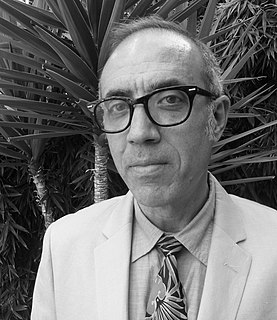A Quote by Zach Braff
I didn't necessarily have a total idea when I was writing the movie of where everything was going. I just wanted to have really realistic dialogue and write like people I knew talked. I tried to keep it very real.
Related Quotes
Everything has become very corporate and very careful. Before we had a real democracy going and there were a lot of freedoms and now there's this terrorism thing that everybody's focused on, which is really a boondoggle in my opinion. It's just an excuse to clamp down on people's free speech. And corporations intimidate people and everybody's gotten intimidated and that's really what it is, and they just keep going along. It's almost like - a little bit like that Charlie Chaplin movie, Modern Times, or 1984, Orwell
The way you write dialogue is the same whether you're writing for movies or TV or games. We use movie scriptwriting software to write the screenplays for our games, but naturally we have things in the script that you would never have in a movie script -- different branches and optional dialogue, for example. But still, when it comes to storytelling and dialogue, they are very much the same.
I think people feel very comfortable reviewing the idea of me, as opposed to what I've actually written. Most of the time, when people write about one of my books, they're really just writing about what they think I may or may not represent, as sort of this abstract entity. Is that unfair? Not really. If I put myself in this position where I'm going to kind of weave elements of memoir into almost everything, well, I suppose that's going to happen.
When I first started writing plays I couldn't write good dialogue because I didn't respect how black people talked. I thought that in order to make art out of their dialogue I had to change it, make it into something different. Once I learned to value and respect my characters, I could really hear them. I let them start talking.
Touring was an abstract idea for me in the beginning. I didn't know where it was going to take me, but I knew that I wanted to go and play for lots of people. I always had that image in my mind. I had no idea what the touring experience was like, and how it was going to unfold, but I knew that I wanted to tour. Then it just started happening slowly started happening.
During my career as a standup and actor, I realized it was very frustrating for me to get hired because Hollywood was hiring a different kind of brother, you know, and I was doing political humor... In order for me to really have a long career, I'm going to have to learn how to write and produce for myself... I had no idea I was really going to like it and I'm very fortunate to be successful. But the idea was to always eventually create something for myself. That was the idea from the beginning when I went into writing and producing.
When I first started writing, there was no way I'd write a sex scene. That just seemed impossible. That's why in "Fight Club" all the sex happens off-screen. It's all just a noise on the other side of the wall or the ceiling. I just couldn't bring to write in a scene like that. So one of the challenges with "Choke" was I wanted to write sex scenes until I was really comfortable just writing them in a very mechanical way.
The secret to writing is just to write. Write every day. Never stop writing. Write on every surface you see; write on people on the street. When the cops come to arrest you, write on the cops. Write on the police car. Write on the judge. I'm in jail forever now, and the prison cell walls are completely covered with my writing, and I keep writing on the writing I wrote. That's my method.
And I felt more like me than I ever had, as if the years I'd lived so far had formed layers of skin and muscle over myself that others saw as me when the real one had been underneath all along, and I knew writing- even writing badly- had peeled away those layers, and I knew then that if I wanted to stay awake and alive, if I wanted to stay me, I would have to keep writing.
I spent my twenties not really participating in the work force in any real way. I acted a tiny bit, but that was just because it was the only way I knew how to make money, and I sublet my apartment and lived in the woods and just tried to figure out who I was and what I wanted, what my real desire was and not just what I was used to doing, and it was a really confusing and painful, but really rich and amazing time.




































